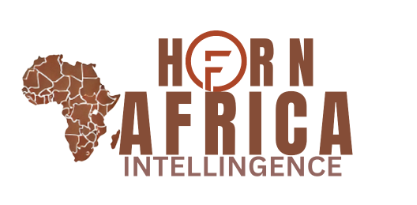February 17, 2025. The human rights situation in Ethiopia remains dire as government forces, militias, and armed groups commit widespread abuses, particularly in conflict-affected regions. The ongoing violence in the Amhara region between Ethiopian military forces and local militias has resulted in numerous civilian deaths, injuries, and destruction of infrastructure, including attacks on hospitals and refugee camps. A state of emergency, initially enacted for Amhara, was extended nationwide, leading to mass arrests and heightened government repression.
Escalating Conflict and War Crimes
The armed conflict between the Ethiopian military and Fano militia continues to inflict suffering on civilians. Reports from the UN Office of the High Commissioner for Human Rights (OHCHR) highlight extrajudicial executions, sexual violence, and drone strikes on civilian areas. One of the deadliest incidents occurred on January 29 in Merawi town, where dozens of civilians were killed by government forces.
Medical professionals, patients, and health facilities have also come under attack. Soldiers reportedly beat and arbitrarily detained healthcare workers while interfering with the delivery of humanitarian aid. Since January, at least eight aid workers have been killed, and violence against humanitarian personnel remains rampant.
The crisis extends beyond Amhara, with Eritrean government forces accused of committing sexual violence, abductions, and property destruction in Tigray. The Oromia region has also seen a surge in kidnappings for ransom, further exposing the government’s failure to maintain security.
Crackdown on Freedoms and Political Dissent
Journalists, human rights defenders, and opposition politicians continue to face government harassment, arrests, and surveillance. In February, Ethiopian security forces arrested opposition politician Dessalegn Chanie, while French journalist Antoine Galindo was detained and later released after international pressure. The government has used the state of emergency to target critics, detaining hundreds of journalists, academics, and lawyers.
In November, the Ethiopian Authority for Civil Society Organizations (ACSO) suspended three major human rights groups, forcing them to halt operations. Though the suspension was lifted in December, civil society organizations continue to face intimidation.
Internet access remains restricted, with authorities frequently cutting mobile services, particularly in conflict areas, hindering both communication and reporting.
Justice and Accountability Concerns
Despite the government’s adoption of a transitional justice policy in April, accountability efforts for human rights abuses remain inadequate and lack transparency. The Ethiopian government continues to downplay its role in civilian atrocities, raising doubts about its commitment to justice.
International responses have been mixed. While the European Union and the United States have called for credible accountability mechanisms, Ethiopia’s international partners, including the World Bank and the International Monetary Fund, continue to provide financial assistance without stringent human rights conditions.
Economic Challenges and Humanitarian Crisis
Ethiopia’s economy is struggling with soaring inflation and rising external debt. Financial support from the United Arab Emirates and international lenders has provided temporary relief, but policies such as fuel subsidy cuts and expanded taxation have sparked concerns over the economic burden on citizens.
Meanwhile, internal displacement remains a critical issue. Conflict in Amhara and Tigray has forced thousands to flee, while reports indicate that Sudanese refugees in Ethiopia face violence, forced labor, and deportation.
As Ethiopia grapples with deepening crises, the government’s continued repression and failure to address human rights abuses highlight the urgent need for international intervention and a credible accountability process.













